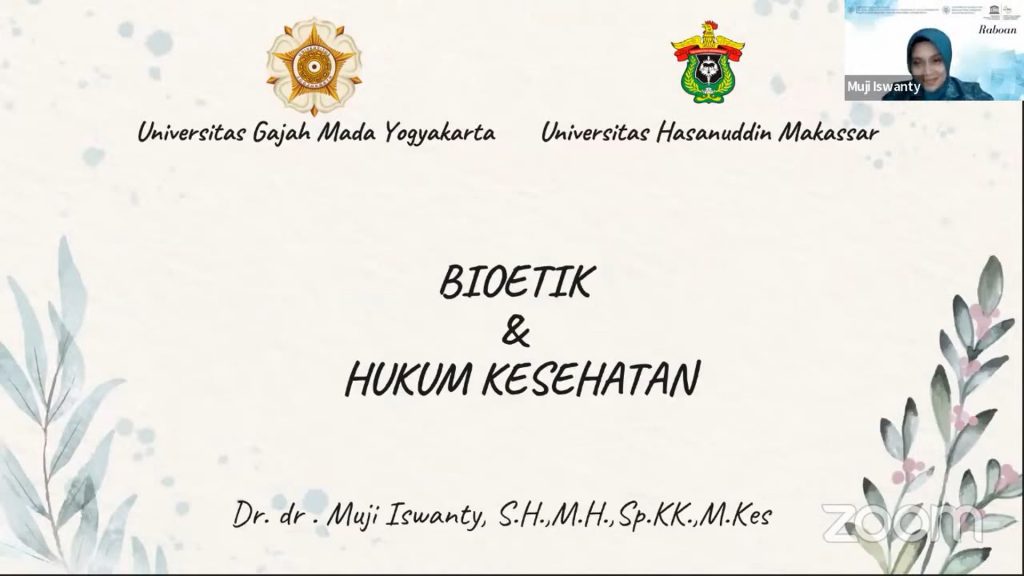Center For Bioethics and Medical Humanities (CBMH UGM) held the annual Raboan Discussion Forum. This week, Wednesday (01/12) the discussed topic is Health Law Literacy. The topic was presented by Dr. dr. Muji Iswanty, S.H., M,H., Sp.KK.,M.Kes from Universitas Hassanudin. She is also the head Masyarakat Hukum Kesehatan Indonesia Sulawesi Selatan. The discussion was conducted by dr. Nasrun S.H., M.Sc as moderator.

Dr. Muji revealed that nowadays some doctors and health service provider doesn’t follow the four bioethics principal which is beneficience, non maleficience, autonomy, and justice. This occurences often led to legal dispute between patients and doctors or health care providers.
According to dr. Muji, doctors and patient should build a terapeutic relationship which is very important for both parties. To build healthy relationship between doctors and patient there should be a mutual understanding about both rights and obligations. Patients rights according to dr. Muji are healthcare services, rights for information, second opinion, privacy, and medical treatment consent. Meanwhile, patients ablogation are good intentions, giving information to doctor, to implement doctors advices and to be cooperative.
In another side, doctors and healtcare provides also had their rights and obligation. The obligation for doctors and healthcare are written in doctor’s oath and standard operating procedure. Meanwhile doctors and healthcare providers rights are the freedom to work, self privacy, and reward.
Bioethics principal and Health Policy thus can be concluded as very related. According to dr. Muji Health Law is part of the general law that regulates the behavior of every member of the community related to health services and is responsible for everything that can cause harm/death.
Laws related to health in Indonesia included Undang-Undang Praktik Kesehatan (UU Republik Indonesia No 29 tahun 2004), Undang-Undang Tenaga Kesehatan (UU Republik Indonesia No 36 tahun 2014), and Undang-Undang Rumah Sakit (UU Republik Indonesia No. 44 Tahun 2009).
It is very important for doctors and healthcare providers to understand this regulation because it is related to patient safety.
“This is our guideline that we need to know until we stop practicing,” said dr. Muji.
Watch the full video here






